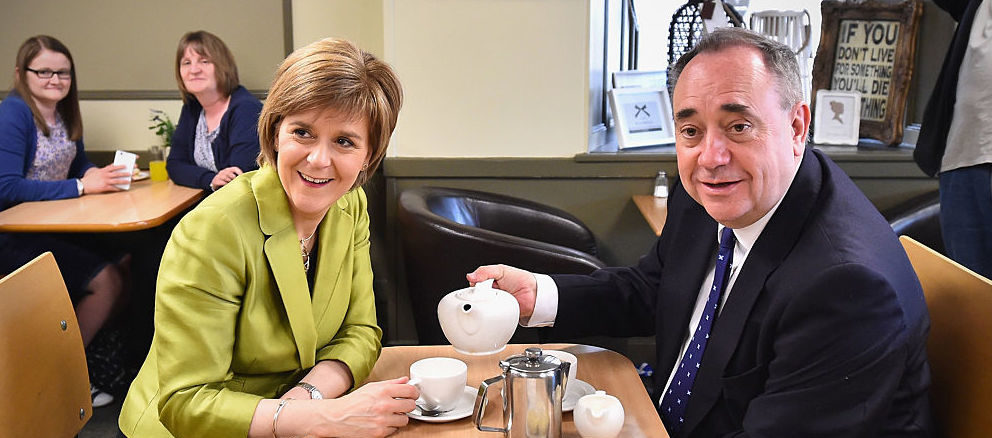Here we go. While Nicola Sturgeon continues to bullishly insist that she will be calling an independence referendum if she wins next month’s Scottish elections — despite it not being in Holyrood’s power to authorise one — the SNP leader’s natural caution has surfaced once again.
The First Minister has suggested that she might push back any vote until 2024 if Scotland was still grappling with the aftermath of Covid-19 for the next year or two. Apparently, this is the first indication she has given of holding it later than 2023, the mid-point of the next Scottish Parliament.
Such a delay is, within the context of another referendum being generally a very bad idea, perfectly sensible. It is inevitable that a referendum campaign would consume the bandwidth of a separatist Scottish Government to the detriment of almost anything else — and a cynic might say that if there are great costs to be borne, it is best they are borne by Britain’s broader shoulders.
But the concession will surely be music to Alex Salmond’s ears. His new Alba Party exists to reflect and exploit deep divisions in the separatist movement, and one of the deepest is over the timing and tactics of the push for ‘indy’.
He’s an old man in a hurry, desperate for the glory of delivering independence, but near the end of his political life. Thus, he says a vote for Alba is a vote for the Scottish Government to begin immediate negotiations with London and explore alternatives to even having another referendum.
Sturgeon is more cautious. She knows that a second defeat will probably do for Scottish independence what it did for Quebecois sovereignty. Her goal has been to try and build up support for it; first by waiting for a Brexit backlash that never really arrived, and latterly by adeptly harnessing the backlash against the UK Government’s mishandling of the pandemic.
Which is fine, as far as it goes. But it’s one thing to take such a dispassionate view as a freshly-installed First Minister in 2015, and quite another to stick to it in 2021, scandal-worn and almost certainly in the autumn of your time in the top job.
If Boris Johnson holds fast to his commitment to refuse another referendum, he can easily justify putting one off until at least after the next general election in 2023 or 2024. Assuming that the Government then accedes to a referendum, there would then be a protracted process of negotiations over the question and so on. That is, plus the time needed to get the relevant legislation through Parliament.
Forget 2024, it isn’t impossible to see how Westminster could string the process out until 2025 or beyond. At which point the SNP will have racked up four more years of poor government whilst Alba airs the movement’s dirty laundry at Holyrood, and Sturgeon will have been First Minister for 10 years.
Which may be why, in addition to the new pressure being brought to bear by Alba, there is just a whiff of the old woman in a hurry about her now.











Join the discussion
Join like minded readers that support our journalism by becoming a paid subscriber
To join the discussion in the comments, become a paid subscriber.
Join like minded readers that support our journalism, read unlimited articles and enjoy other subscriber-only benefits.
Subscribe